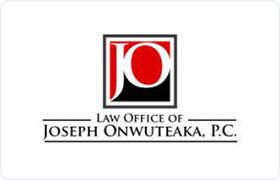Palmer Real Estate Other Lawyer, Texas, page 2
Sponsored Law Firm
-
 x
x

Click For More Info:
-
Law Office of Joseph Onwuteaka, P.C.
8323 Southwest Fwy Suite 650 Houston, TX 77074» view mapSlip & Fall Accident Fighting Fearlessly For Your Rights
I'm committed to providing experienced and tenacious legal representation. I will fight for the best possible outcome in your case & won't give up, even when things get tough.
800-960-3430
Includes: Commercial Leasing, Commercial Real Estate, Condominiums, Conveyancing, Housing & Urban Development, Premises Liability, Residential Real Estate, Title Insurance
John J. Roberts
Litigation, Personal Injury, Premises Liability, Transportation & Shipping
Status: In Good Standing
R. Scott Mayo
Products Liability, Transportation & Shipping, Construction, Premises Liability
Status: In Good Standing
Sean A. Clemmensen
Commercial Real Estate, Litigation, Health Care, Insurance
Status: In Good Standing
Clayton Rowland Hearn
Personal Injury, Employment, Commercial Real Estate, Business, Mass Torts
Status: In Good Standing
Lesley C. Siebenhausen
Products Liability, Labor Law, Employment, Premises Liability
Status: In Good Standing
Daniel M Shusterman
Premises Liability, Transportation & Shipping, Personal Injury
Status: In Good Standing
FREE CONSULTATION
CONTACTTroy David Helling
Commercial Real Estate, Health Care, Employment, Business, Personal Injury
Status: In Good Standing
FREE CONSULTATION
CONTACTRagan N. Speer
Personal Injury, Wrongful Death, Premises Liability, Animal Bite
Status: In Good Standing
 Joseph Onwuteaka Houston, TX
Joseph Onwuteaka Houston, TX Practice AreasExpertise
Practice AreasExpertise
